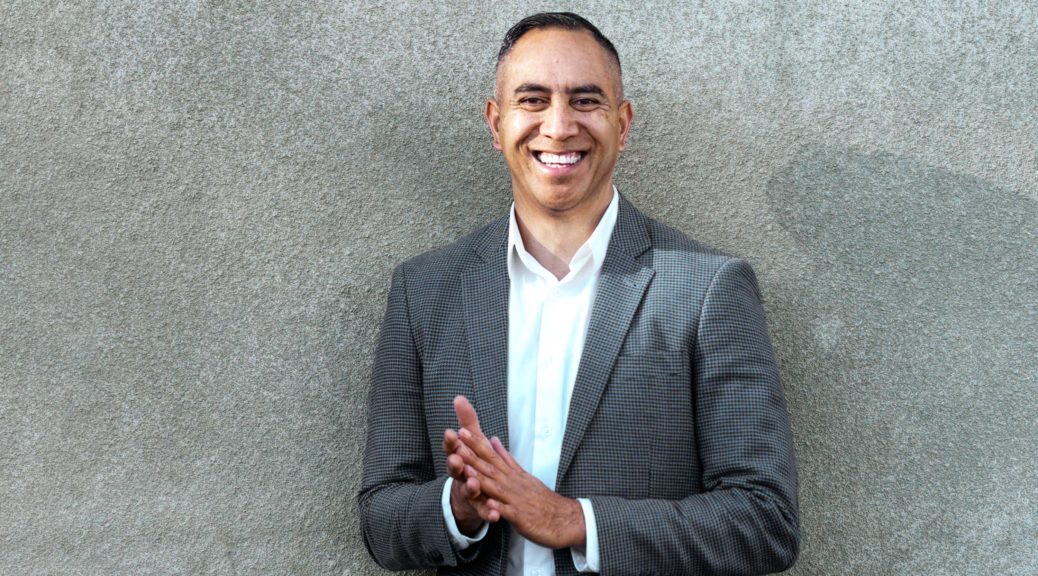DR BEVAN ERUETI
Taranaki, Te Ati Haunui-ā-Papārangi, Ngāti Tūwharetoa
School of Health Sciences
How do Māori athletes in elite sport safely navigate and create balance between their identities as an athlete and as Māori? How can mātauranga Māori (Māori knowledge) in both sport and health assist in encouraging the bicultural rhetoric of Aotearoa? And, in a wider sense, how can Māori values and belief systems encourage human and environmental health and wellbeing?
At first glance, these questions seem very different, but according to Dr Bevan Erueti from the School of Health Sciences the central unifying component is the advancement of Māori development. ‘My core research agenda is mātauranga Māori,’ he explained. ‘Te ao Māori — the Māori world — has so much to offer and I really enjoy seeking opportunities to find innovative ways to explore the juxtaposition of te ao Māori, sport, physical activity and health.’ For instance, in regard to sport, he interviewed elite Māori athletes from a variety of sporting codes and disciplines, the majority of whom had competed at the Olympic Games, asking them about their experiences and interpretations of what it means to be Māori while competing in elite level sport.
The Olympics, says Dr Erueti, has provided important opportunities for the inclusion of Māori knowledge on the global sporting stage, and has had a significant role to play for Māori athletes themselves. He asked Māori Olympic athletes how it made them feel to take part in activities such as pōwhiri (welcome ceremonies) or the haka, performed for those who won medals. The athletes said that the haka was one of the highest accolades that anyone could receive, and theywere amazed at the way it was picked up by their non-Māori sporting peers. Consequently, Māori athletes felt affirmed in their identity, as Māori knowledge was being acknowledged and celebrated in positive ways. ‘Māori athletes also gain a sense of connection to their whakapapa, their ancestry, in ways that are safe, which also positively impacts on their Māori identity,’ he said.
In a wider sense, Dr Erueti sees the haka as one method that promotes our national identity in the world arena, andhe has spoken about the haka at the Faculty of Law, Victoria University of Wellington, in reference to the wider protection, enhancement and transmission of cultural and spiritual knowledge. During Aotearoa’s Covid-19 lockdown in April 2020,he presented remotely at an international conference to explicate how the haka continues to be misinterpreted in the media. ‘The haka is a taonga — a treasure of high value; it’s more than just a pre-performative act to taking to the sports field, and the international media narrative completely diminishes the value of what those elements of mātauranga Māori mean to us in Aotearoa,’ he said. Gaining an appreciation of Māori knowledge by non-Māori in sport contexts presents opportunities to examine Aotearoa New Zealand’s bicultural journey and evolving notions of Te Tiriti o Waitangi. ‘The haka presents a segue for Māori and non-Māori in sport to seek a deeper understanding of where we come from, who we’re representing, and it creates a shared sense of unity and belonging.’
As well as his work with Māori elite athletes, Dr Erueti has become increasingly involved in projects that integrate elements of hauora, Māori perspectives of holistic health and wellbeing, and the connection to whenua (land) and te taiao (the environment). One such project will utilise pūrākau (traditional narratives and stories) to understand the meaning specific hapū (subtribe) and iwi (tribe) give to te taiao, ngahere (forestscapes) and taonga species. ‘I’m hoping that a Māori-centric approach will provide a broader understanding of the complex relationships of biodiversity in Aotearoa than what is currently presented.’
In another joint project with lead researchers from the University of Waikato, he is collaborating with six different iwi/health providers and partnering with kaumātua (Māori elders) to co-design and examine ways that would best motivate and increase their levels of physical activity, in order to give better quality of life as they age. ‘Our initial hui [meetings] and wānanga [discussions] with kaumatua indicate their desire to reconnect with whenua and te reo Māori [Māori language] through physical activity while immersing themselves in the pūrākau of their local environment’. He says that affirming conceptual storyscapes of lands and waters that have personal and specific cultural significance will do more than just impact on physical wellbeing, but will also positively influence aspects of their emotional, mental and spiritual wellbeing.
Dr Erueti concludes that his research is embedded in Māori cosmology, ontology and epistemology, consequently the outcomes extend beyond that of typical stakeholder analysis or values analysis research. He says ‘it will be an absolute privilege to be involved in projects that combine past and present knowledge, and transform that knowledge for future generations. There is so much yet to learn.’

